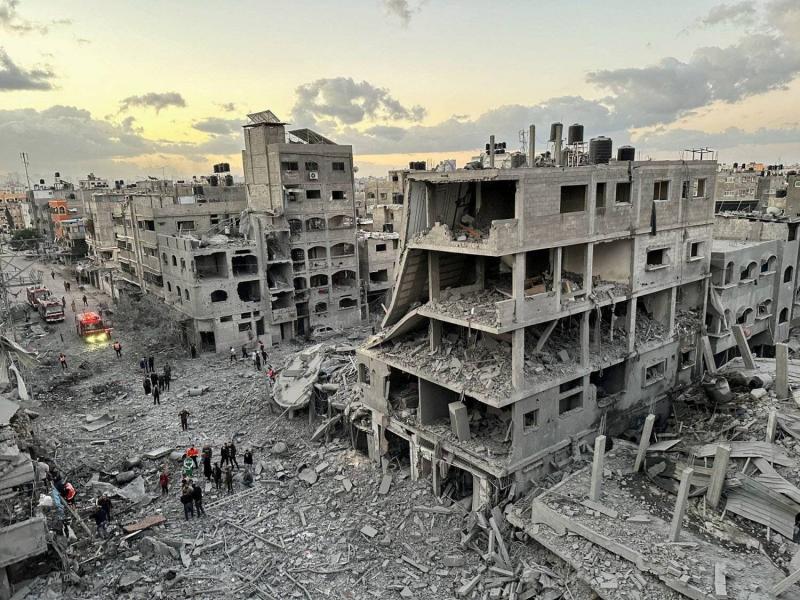Israeli Prime Minister Benjamin Netanyahu stated that any ceasefire agreement in Gaza must allow Israel to continue fighting until it achieves its war objectives. He added that the agreement should prevent the smuggling of weapons to Hamas across the Gaza border and should not allow thousands of militants to return to northern Gaza. Netanyahu noted in a statement that Israel will work to bring back as many surviving hostages as possible.
This comes as a Hamas leader mentioned that the group has agreed to "initiate negotiations" regarding the hostages "without a permanent ceasefire." His statement coincides with renewed mediation efforts by the United States, Egypt, and Qatar, urging Israel and Hamas to engage in talks to end the ongoing war, which has lasted for nine months, and to reach an agreement for the release of hostages held by Hamas and Palestinian detainees in Israel.
The official, requesting anonymity, reminded that "Hamas previously insisted that Israel agree to a complete and lasting ceasefire" before entering negotiations about the hostages. He added, "This condition has been surpassed, as the mediators pledged that as long as hostage negotiations continue, the ceasefire would remain in place." He continued, "Hamas has retracted its condition regarding a permanent ceasefire, as it agreed to commence negotiations without a permanent ceasefire."
Officials have stated that Israel had previously strongly opposed Hamas's demands for a permanent ceasefire. Netanyahu affirms he will continue the war until Hamas, which has controlled the Gaza Strip since 2007, is eliminated. U.S. President Joe Biden proposed a plan on May 31, which he indicated was suggested by Israel, outlining a six-week ceasefire in the initial phase and the release of hostages in exchange for the release of Palestinian detainees.
Israeli Mossad chief David Barnea left Doha on Friday after talks with Qatari mediators regarding a plan for a ceasefire and the release of hostages. A spokesperson for Netanyahu's office stated that Israel would send its envoys back to Doha "next week" to revive negotiations on a ceasefire in the sector, citing "gaps between the two sides." U.S. Central Intelligence Agency Director William Burns is set to arrive in Doha on Wednesday, according to a source familiar with the negotiations.
The Hamas leader pointed out that Egypt and Turkey are making efforts "to reach an agreement." He noted that "Hamas expects the negotiations to take two to three weeks if Israel does not disrupt the negotiation process as it has in previous instances." He added, "The ball is in Israel's court; if they want to reach an agreement, it is very much possible to achieve." He pointed out that Hamas "has informed the mediators that it wants to bring in aid in amounts reaching up to 400 trucks daily in the initial phase of the agreement and wants the Israeli army to withdraw from the Philadelphia corridor and the Rafah crossing."




